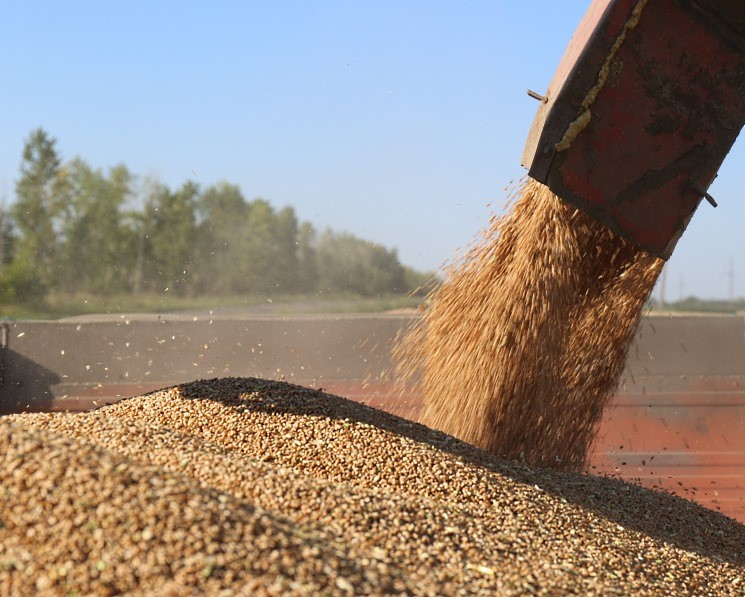Kazakhstan government has decided to impose wheat and wheat flour export quotas for two months from April 15 to June 15.
Tengrinews.kz on April 12 cited First Deputy Minister of Agriculture, Aidarbek Saparov, as saying that the amount of grain and flour available in the country is enough to meet domestic requirements.
According to Saparov, restrictive measures are necessary to eliminate the shortage in the domestic market and load the flour mills.
The Interagency Commission on Foreign Trade Policy and Participation in International Economic Organizations reportedly made the decision to limit flour and grain exports on April 1.
The Government of Kazakhstan has decided to limit wheat exports to 1 million tons from April 15 to June 15.
The same decision has been made on wheat flour exports. The wheat flour exports have been limited to 300,000 tons for the period from April 15 to June 15, Saparov was quoted as saying at an online briefing in the Central Communications Service of Kazakhstan.
To assess the actual situation in the domestic market, the Ministry of Agriculture jointly with the Bureau of National Statistics and local authorities have reportedly been carrying out work on the inventory of wheat reserves in the regions.
“As of April 7, the reserves have consisted of 118,000 of flour, including 10,000 tons in stabilization funds, 22,000 tons – in the framework of “reverse scheme”, 48,000 tons are with producers, about 20,000 tons – in warehouses, and 18,000 tons – in commercial facilities. This volume is fully sufficient to meet domestic requirements. Besides, “Prodkooperatsiya” (production chains – Asia-Plus) has more than 800,000 tons of wheat that in case of necessity will be sent to the domestic market for stabilization of the situation,” Kazakh official added.
Recall, the government of Kazakhstan last month considered three options of possible restrictions to prevent the risks of mass grain exports from the country amid forecasts of a decline in global production, ElDala.kz reports.
The Minister of Agriculture, Yerbol Karashukeyev, proposed three possible options for restrictions: quotas; export customs duties; and complete ban.
It is to be noted that Kazakhstan provides the bulk of Tajikistan’s wheat imports, accounting for more than 90 percent of Tajikistan’s wheat imports.
In 2021, Tajikistan bought about 1 million tons of wheat in Kazakhstan.
The government of Tajikistan has developed the plan of measures to prevent the possible risk of the impact of the crisis on the national economy.
The plan of anti-crisis measures is aimed at providing consumer markets with essential products, including wheat flour.
According to data from the Ministry of Economic Development and Trade of Tajikistan, the country has stocked up on sufficient amount of food products.
In 2021 alone, Tajikistan produced a total of almost 80 billion somonis worth of industrial and agricultural goods, including 828,000 tons of wheat flour, 876,000 tons of wheat, and 415,000 tons of bread and bakery products.
Therefore, domestic resources and capacities can meet the needs of the consumer market in bread and pasta at the proper level.
Along with this, wheat imports for the production of final products under existing contracts with trading partners reportedly continues without interruption.
According to data from the Ministry of Agriculture of Tajikistan, 611,797 hectares of lands this year have been allotted to agricultural crops, with more than 200,000 hectares of them being allotted to grain crop production.
Tajikistan’s current annual requirements in wheat flour are about 1.5 million tons.




